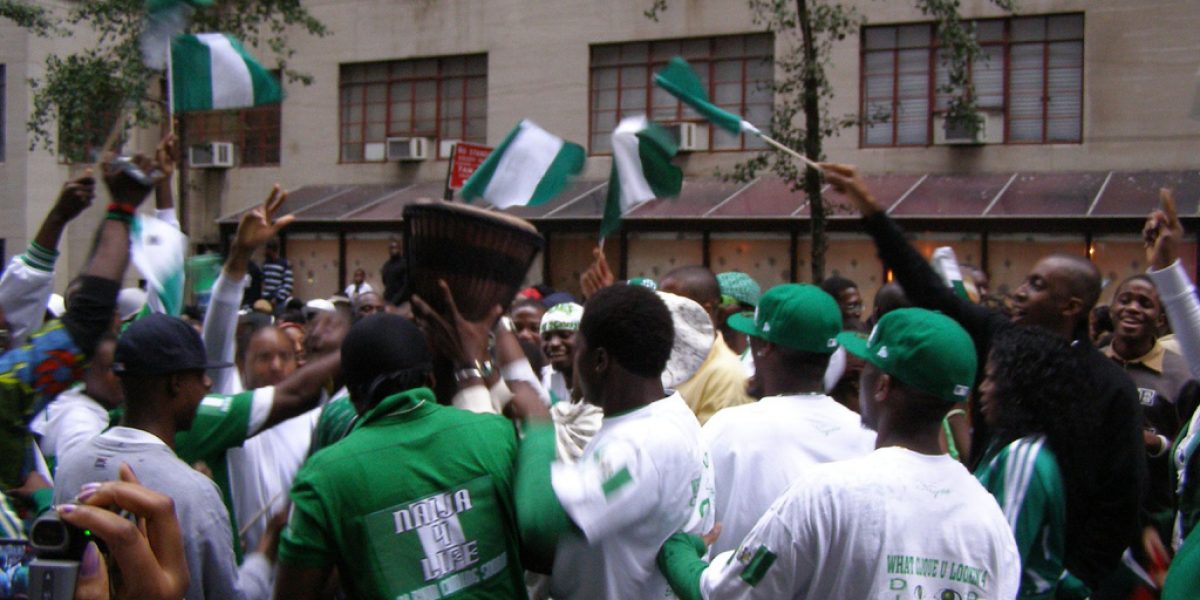Supporters argue it’s a sign of tougher things to come as Obasanjo, belatedly, starts to fulfil his 1999 inaugural pledge: ‘Corruption will be tackled head on at all levels…. Beneficiaries of corruption will fight back, but we shall be firm with them. There will not be any sacred cows in our crusade against corruption.’
However, critics argue that in a land where politics and corruption feed each other, there is more to the arrests than meets the eye.
Though Obasanjo has called for good governance across Africa through the African Union and Nepad, he has little to show for it in Nigeria, despite six years in office. Until now, no senior official has been charged with corruption. Election promises to improve health, education, transport and electricity shortages have gone unfulfilled.
After the Independent Corrupt Practices Commission (ICPC), set up in Obasanjo’s first term, proved ineffective he created the Economic and Financial Crimes Commission (EFCC) in 2003 with wider powers. In its most significant case, the Inspector General of Police, Tafa Balogun, was recently charged with extortion and embezzling $100 million in public funds.
In the last two months, two ministers have been fired. The education minister, Fabian Osuji, was sacked for allegedly bribing Senate president Adolphus Wabara and others in the National Assembly to pass an inflated education budget. Wabara, Osuji, four senators and a member of the House of Representatives were charged with 15 counts of corruption over the affair.
This follows a standoff over the draft 2005 budget. The National Assembly added $800 million to the national budget proposed by Obasanjo, threate-ning reformist finance minister Ngozi Okonjo-Iweala’s drive to curb the budget deficit, a pre-condition for debt relief. A pending fiscal responsibility bill might help by imposing legal restraints on deficit spending by Nigeria’s profligate officials in local, state and federal government. However, soon after the budget bribery scandal broke, Obasanjo signed the Assembly’s enlarged budget into law, worrying creditors that Okonjo-Iweala’s modest success in stabilising the economy would be undone by a free-spending legislature.
In another recent scandal, Housing Minister Mobolaji Osomo was sacked for selling government properties in a wealthy Lagos area without due process to government officials and prominent citizens, including close relatives of Obasanjo’s wife, a fact that caused the president to express personal embarrassment. Critics allege that the presidency had been aware of the deals and, unlike the other disgraced officials, Osomo faces no charges.
One factor in the anti-corruption fight is foreign debt. Nigeria’s government owes some $36 billion, but earns too much from oil to qualify under the International Monetary Fund’s debt forgiveness system. Official creditors say that Nigeria must first make better use of its oil wealth by curbing graft and repairing its shattered infrastructure and collapsed social services.
For Obasanjo, the get-tough policy has clear political advantages. It enables him to weaken or silence a hostile legislature and boost his efforts to persuade the Paris Club of official creditors that Nigeria deserves debt relief.
The arrest of top officials has great symbolic value. But civil society remains sceptical because of growing speculation that Obasanjo is planning to extend his presidency beyond its mandatory two-term limit, which ends in 2007.
Obasanjo has maintained a studious silence, but he has sponsored a constitutional conference, now under-way, which could be a vehicle for permitting a third term.
‘[The corruption crackdown] is merely being used by Obasanjo to boost his waning popularity ratings among Nigerians and please international creditors,’ said the Civil Liberties Organisation’s Awosokanre Oladapo.
‘The fight against corruption can only be won if and only when all leaders, both present and past, who are living off the proceeds of corruption are investigated and brought to book,’ Oladapo said.
Lawyer and human rights activist Femi Falana says the scandal over the education budget is the tip of an iceberg. He alleges that it has become common practice for cabinet ministers to pay bribes to legislators to pass budgets. ‘The name for such bribes is lobbying.’
Time is running out for Obasanjo’s reform programme. In a country with a history of corrupt military rulers, there is little appetite for extending Obasanjo’s term. But the two candidates seen as most likely to succeed Obasanjo inspire little confidence: Vice-President Atiku Abubakar, a former customs chief, is seen as tainted by his past and former military president Ibrahim Babangida’s eight-year rule took corruption to unprecedented levels.
That presents Nigeria with an awkward choice: accept candidates who may return to the corrupt politics of old or extend a third-term, with all the attendant temptations it brings, in hopes Obasanjo will permanently entrench his fight against corruption.








